We Dive Into Your Projects
What were the projects or initiatives you worked on? We probe to understand the scope, the stakes, and the significance.
"Tell me about the biggest project you led last year..."18+ Logistics Resume Examples
In Logistics, you're competing with 800 applicants per search
You're Not Rejected.
— You're Overlooked —
We fix your logistics resume with one conversation
The strongest logistics and supply chain resumes lead with operations scale, cost reduction outcomes, on-time delivery metrics, and throughput improvements — not warehouse square footage or system names alone. Hiring managers at companies like Amazon, FedEx, UPS, and DHL scan for cost savings achieved, inventory turns, service level performance, and proof that your supply chain leadership drove measurable efficiency gains. Every resume sample on this page was built through a 1-on-1 interview that extracted the specific operations, cost control, and service level outcomes that differentiate candidates in a field averaging 800 competitors per job search.
Each logistics resume sample below was written through our 1-on-1 interview process. Click any logistics resume example to see the full sample and learn how we transformed their experience into proof.
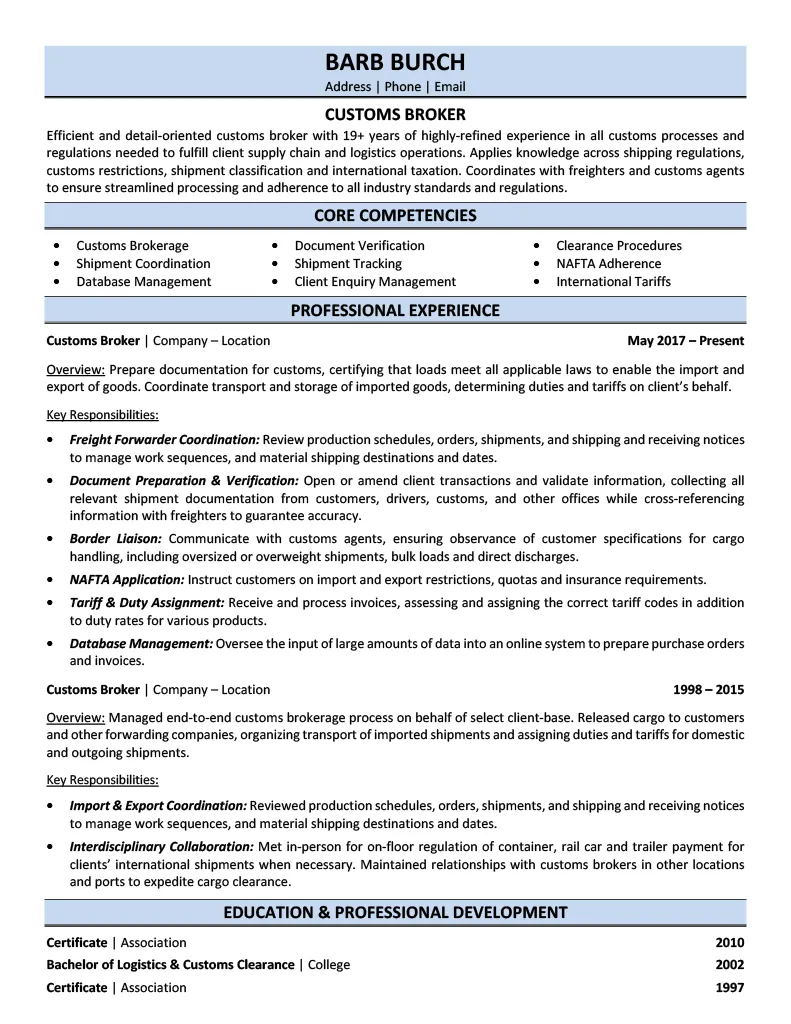
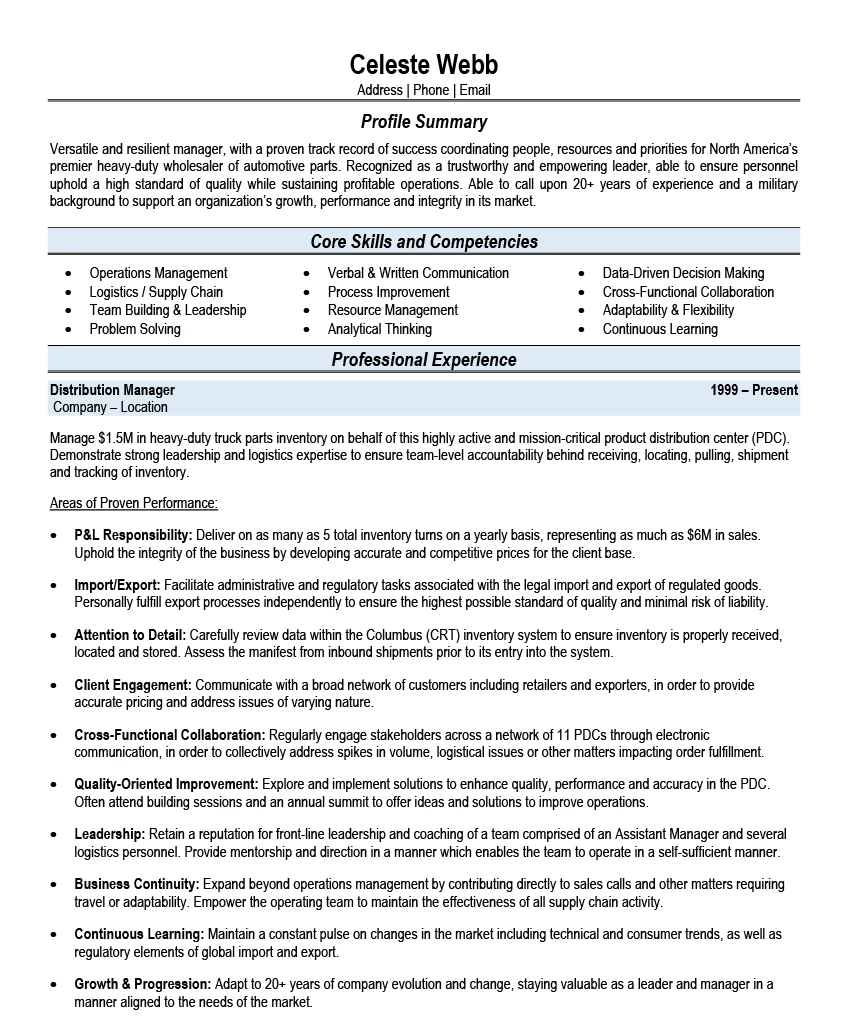
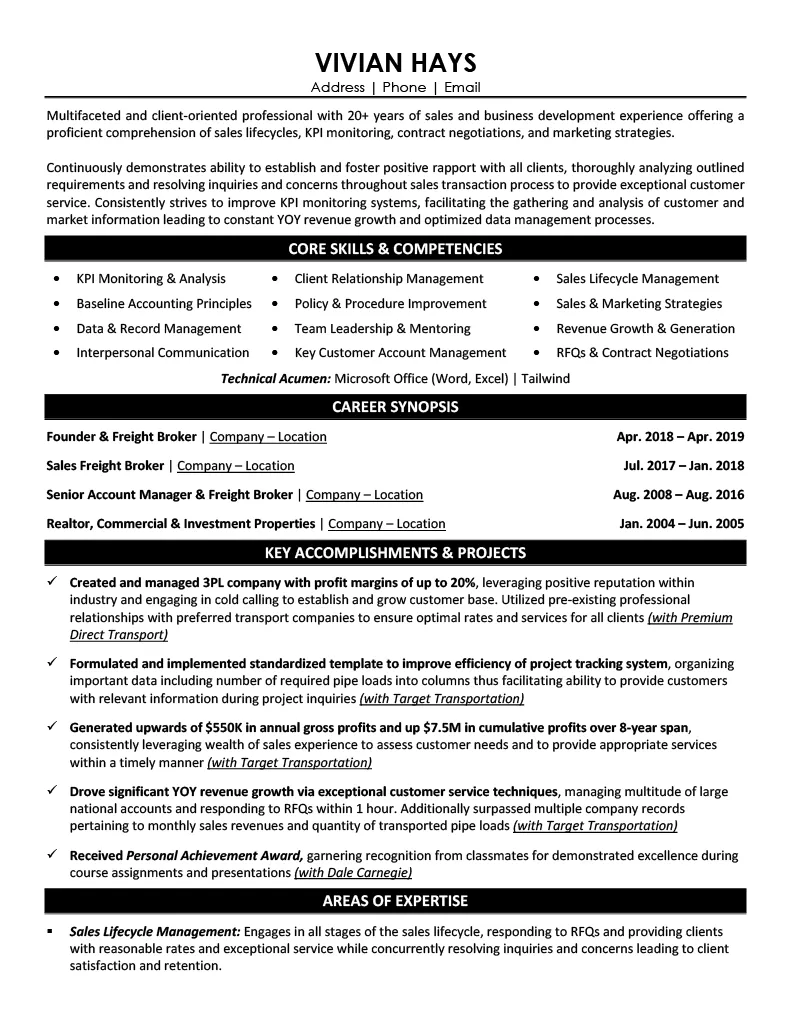
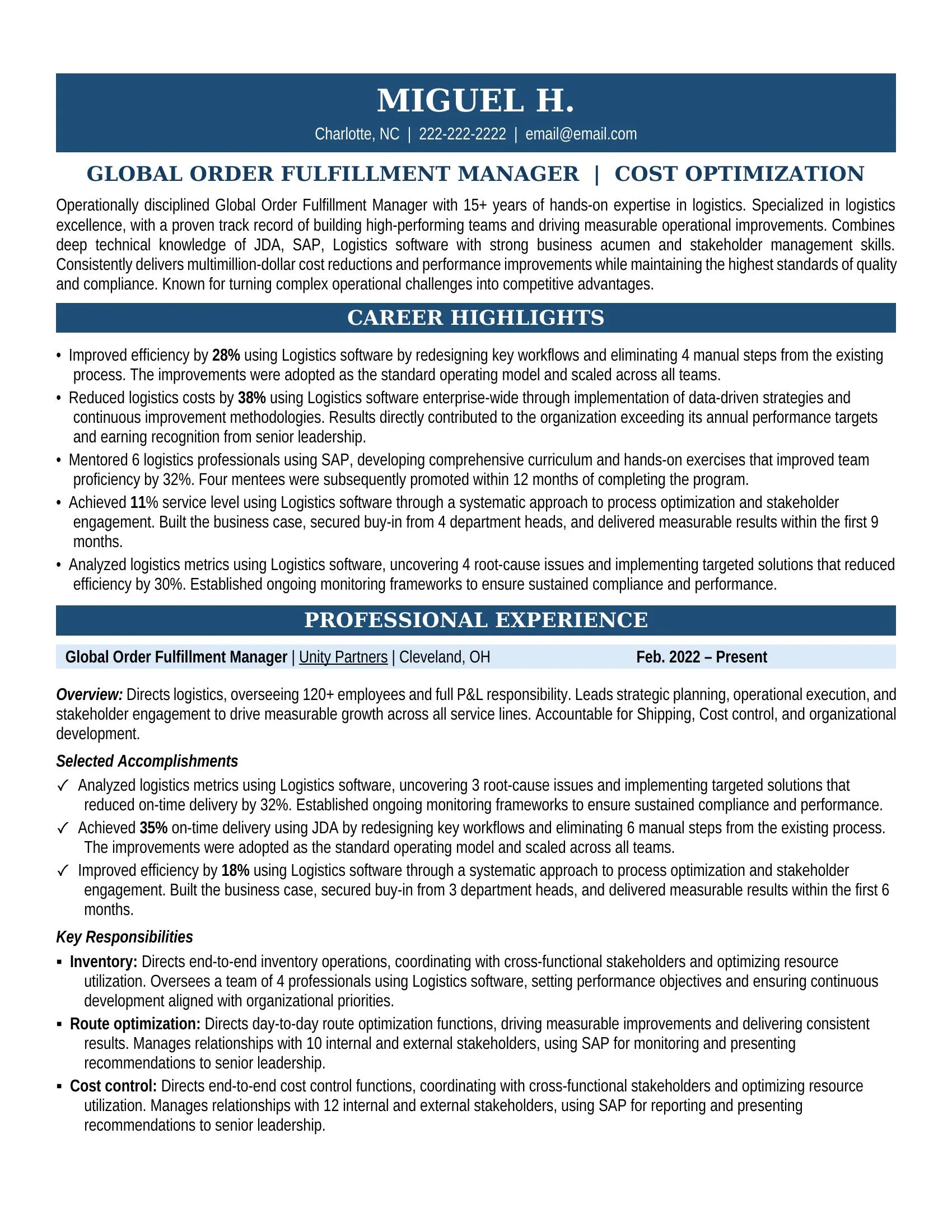
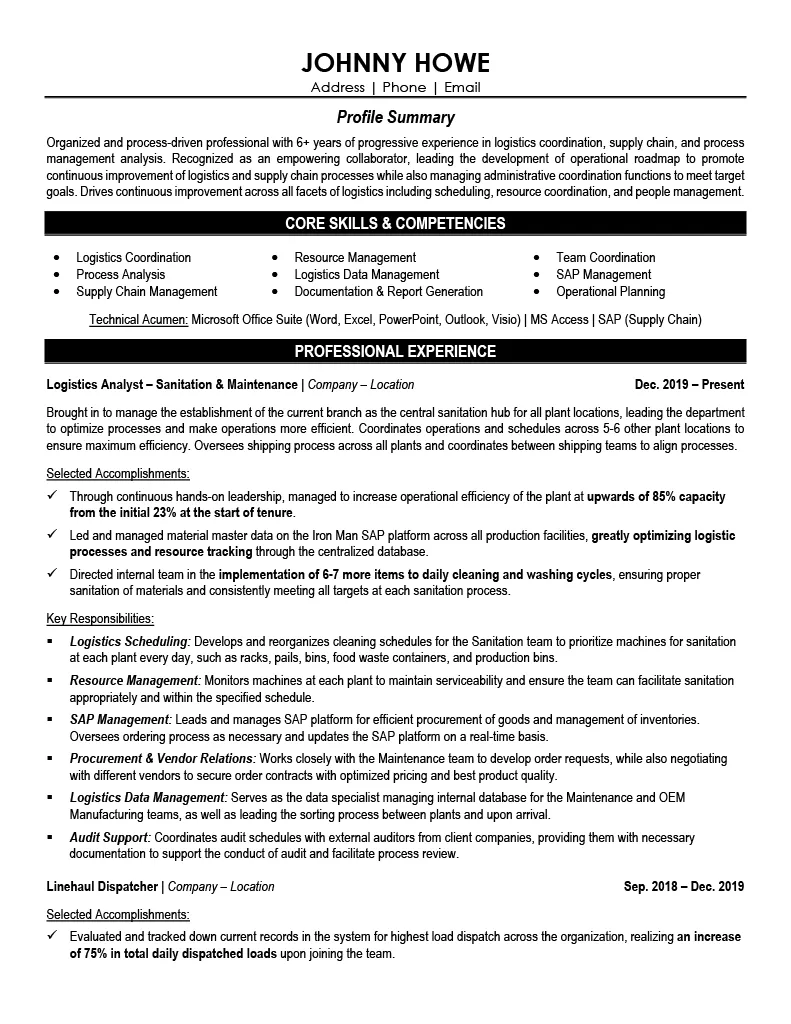
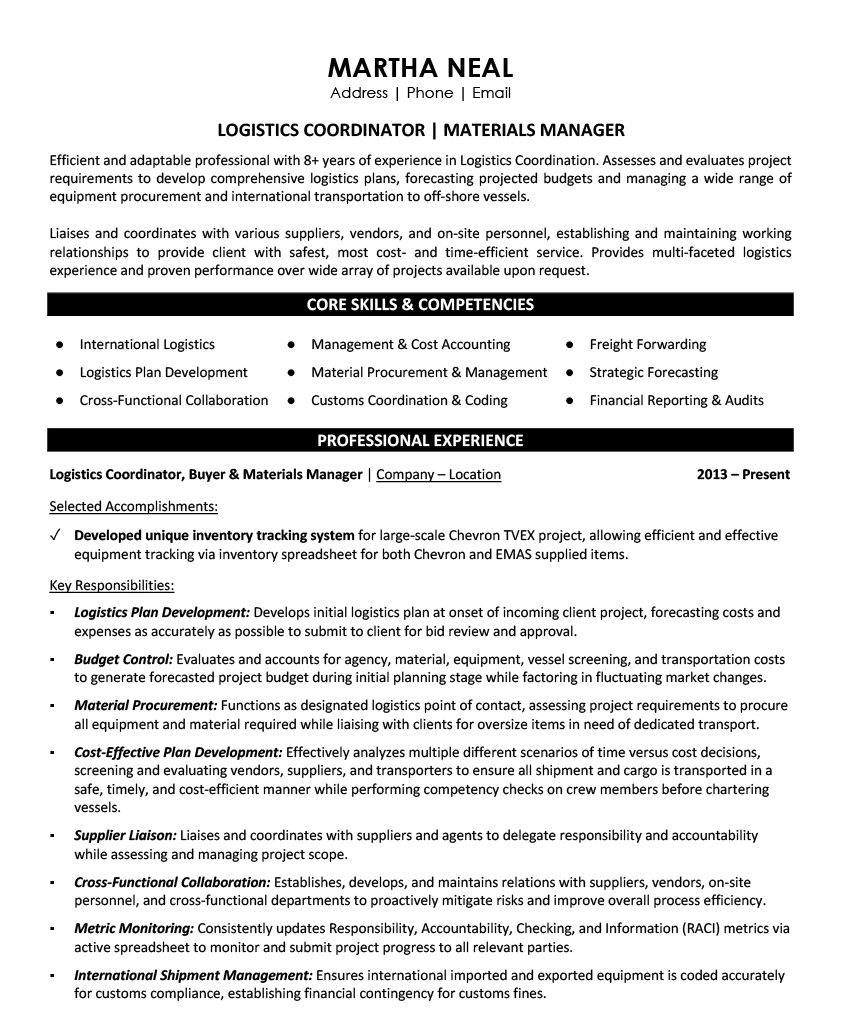
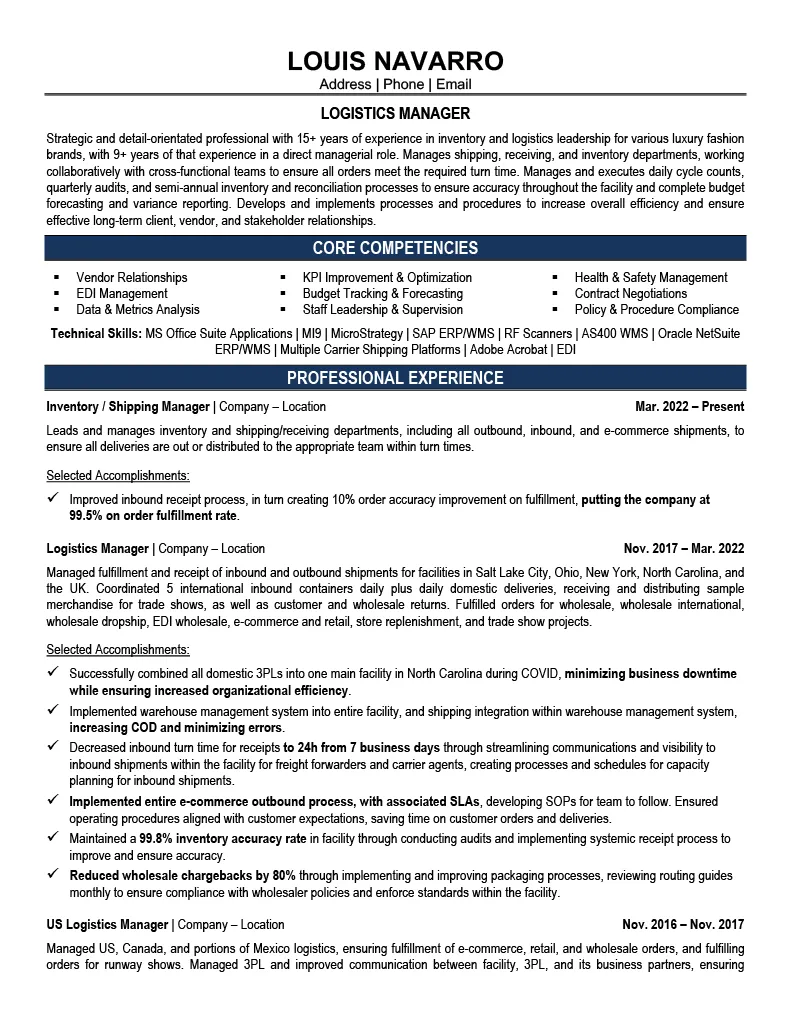

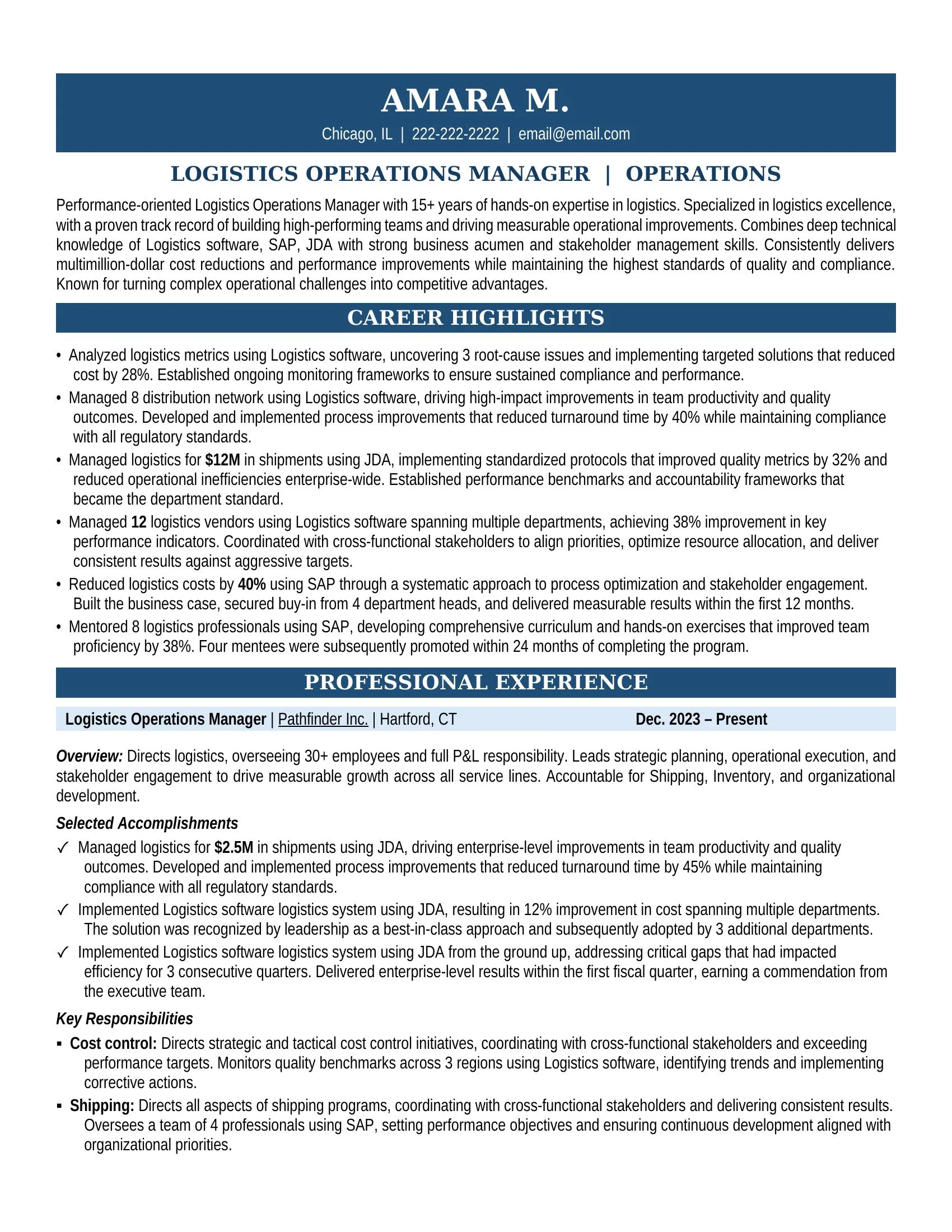


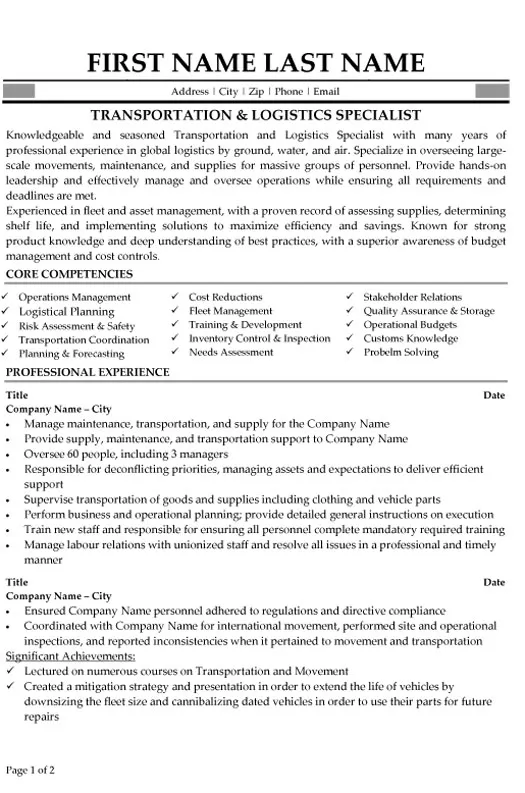
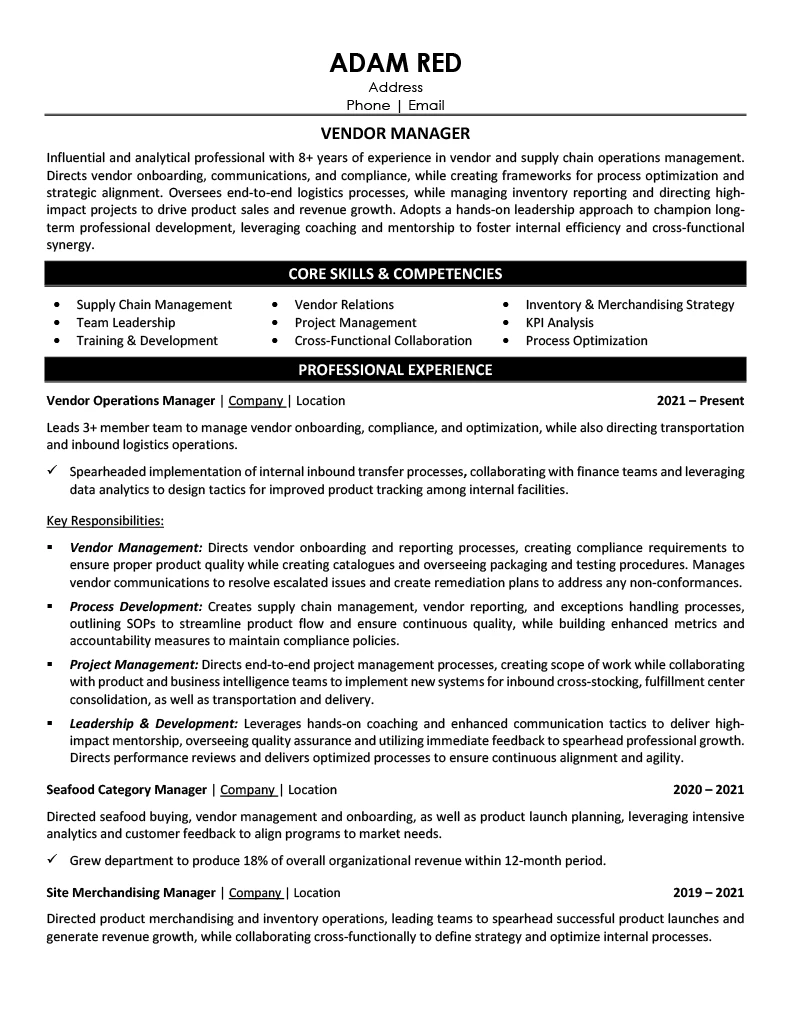
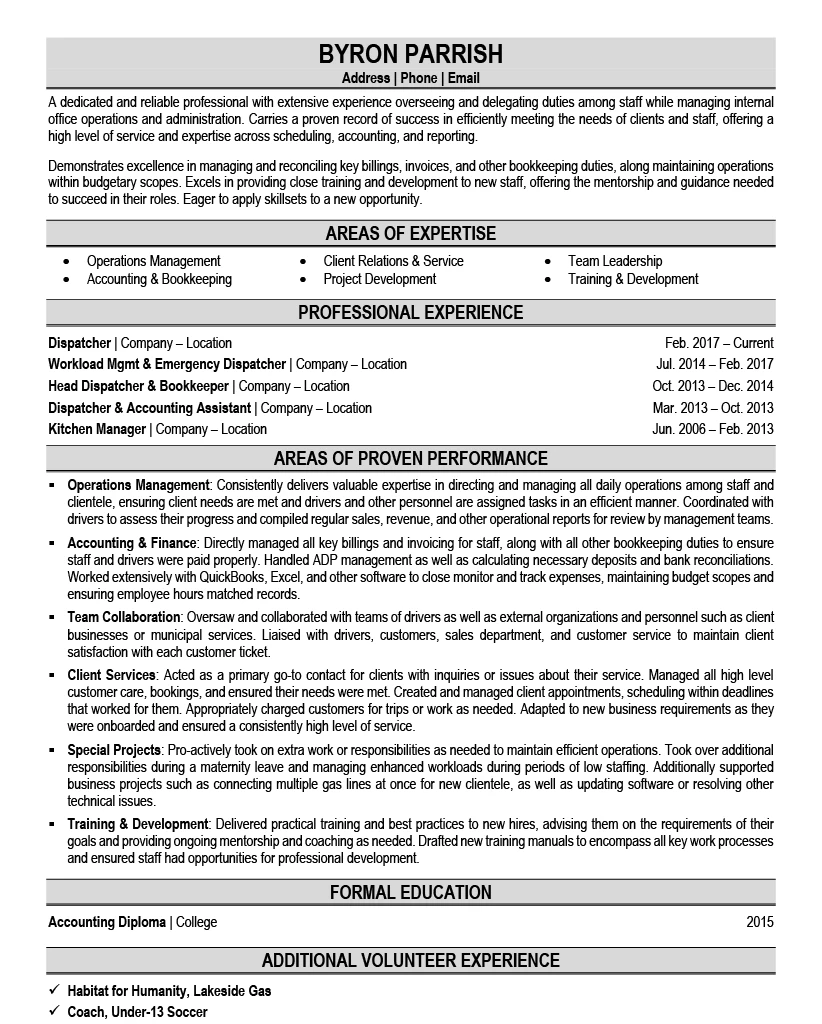
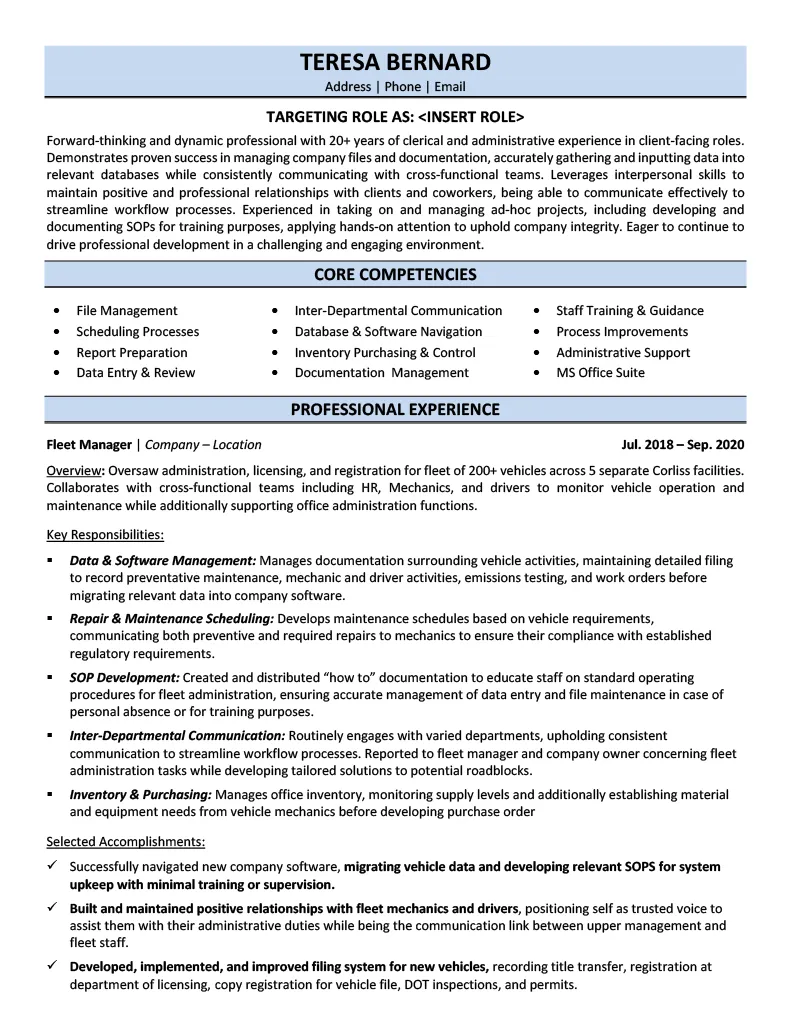
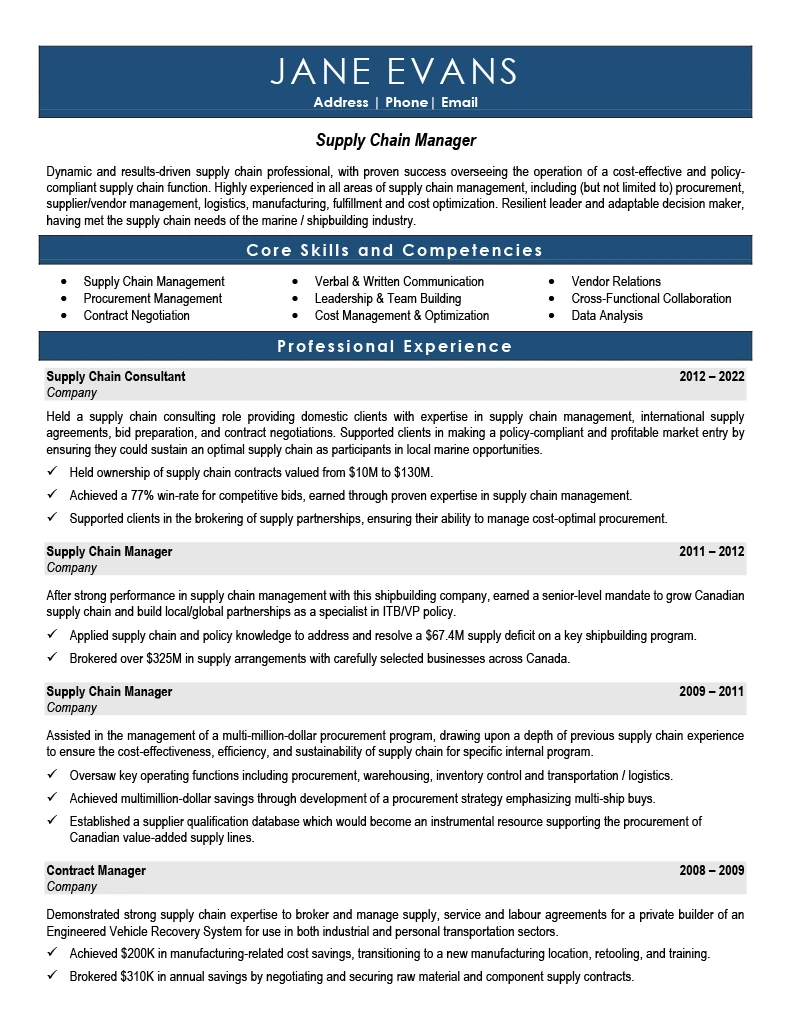
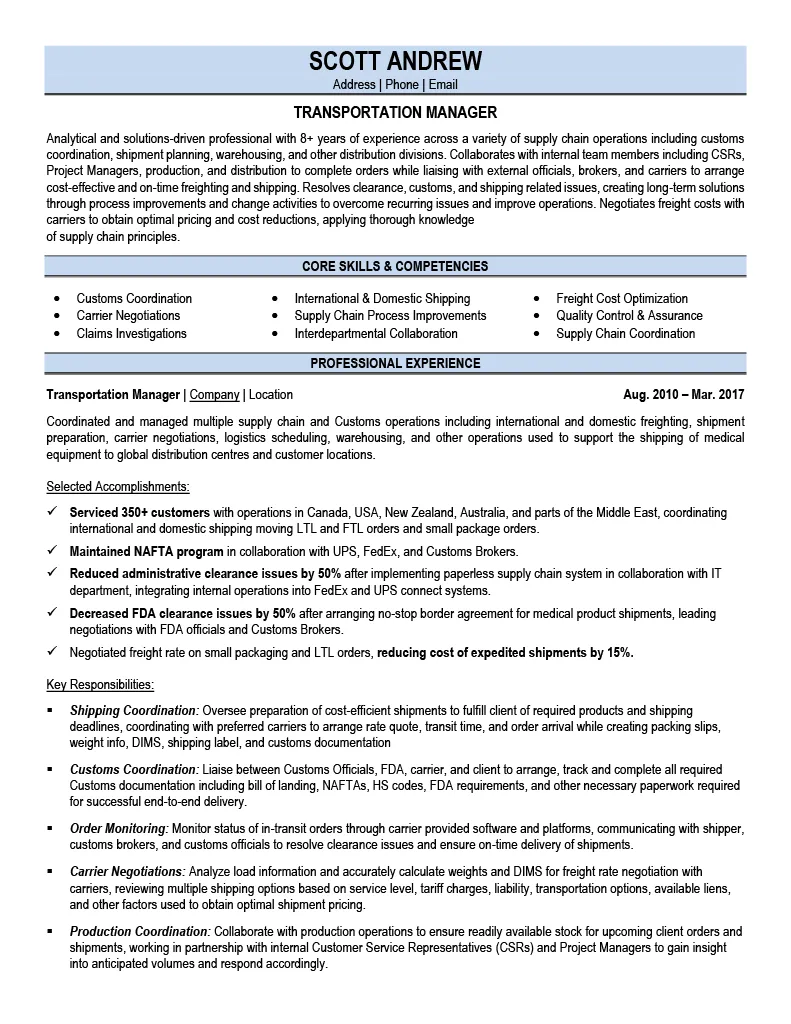
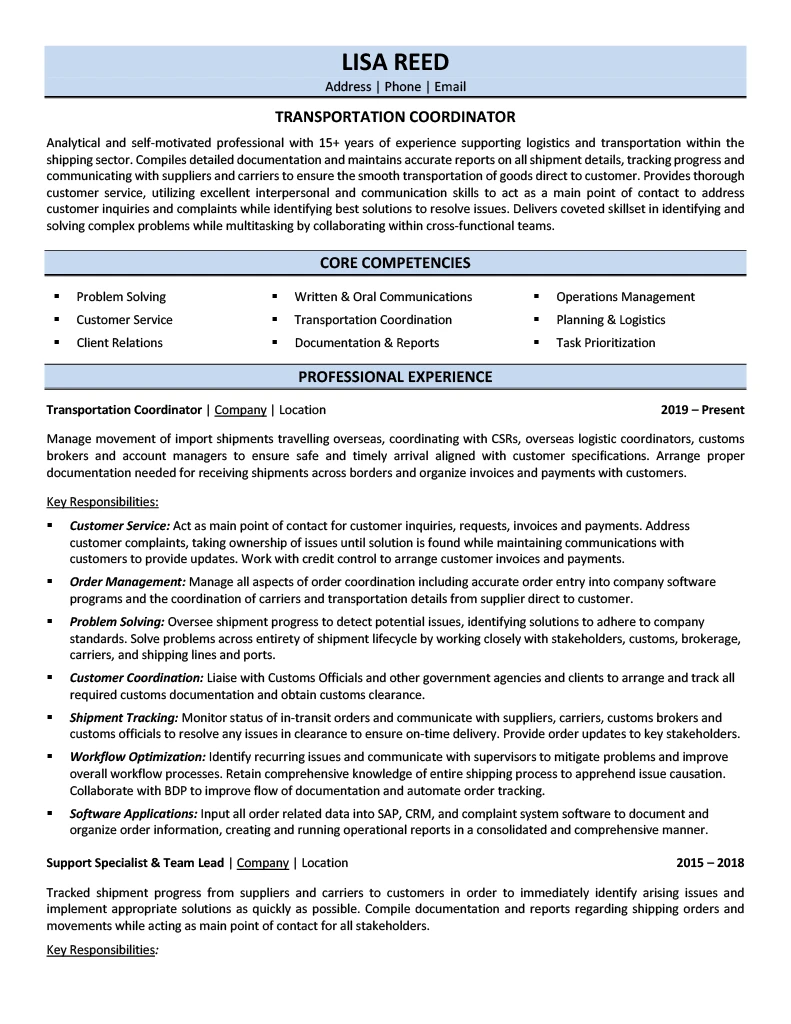
When a hiring manager reads your logistics resume, they should think:
"This person has solved the exact problems we're facing."
What were the projects or initiatives you worked on? We probe to understand the scope, the stakes, and the significance.
"Tell me about the biggest project you led last year..."What were the goals of the project? The company's objectives? We connect your work to business outcomes.
"What was the company trying to achieve with this?"What systems, processes, and strategies did you implement? This is where your expertise becomes visible.
"Walk me through how you actually made this happen..."What challenges did you face? What systems did you implement to overcome obstacles?
"What was the biggest challenge, and how did you solve it?"See how our interview process uncovered achievements and turned them into interview-winning proof.
Get Your Logistics Resume Written
Logistics jobs average 40 applicants per position. You're competing against 800 candidates. Our logistics resume examples show how to stand out.
Data based on LinkedIn job postings. Updated Mar 4, 2026.
Here's the math most job seekers don't do:
Your logistics resume must stand out against 800 professionals.
What makes you different is the story behind the projects.
Get Your Logistics Resume WrittenEvery logistics resume example on this page was written through our 1-on-1 interview process. We extract achievements you'd never think to include.
We identify keywords and achievements that get logistics resumes noticed.
Targeted questions about your logistics projects and results.
Transform responsibilities into quantified achievements.
ATS-optimized resume in 3 business days + 14-day revisions.
80% of logistics positions are never advertised. Get your resume directly into the hands of recruiters filling confidential searches.
When you purchase our Resume Distribution service, your resume goes to 450+ recruiters specializing in logistics — included in Advanced & Ultimate packages.
| Agency | Location |
|---|---|
|
HA
Hays Specialist Recruitment
|
Nationwide |
|
RA
Randstad Staffing Agency
|
Nationwide |
|
KE
Kelly Services Workforce Solutions
|
Nationwide |
|
MA
ManpowerGroup Talent Solutions
|
Nationwide |
|
AD
Adecco HR Services
|
Nationwide |
Logistics and supply chain averages 40 applicants per position across thousands of active job postings — but competition spikes dramatically for analytical and planning roles. Supply Chain Specialist positions are the most competitive at 133 applicants per opening. Production Planner/Inventory Controller and Supply Chain Coordinator each draw 75, Supply Chain Assistant sees 72, and Supply Chain Analyst and Supply Chain Manager each average 71. Procurement Manager draws 67 and Procurement Specialist sees 65. On the logistics operations side, Distribution Manager draws 60, Freight Broker and Logistics Operations Manager each see 58, Vendor Manager averages 56, Logistics Manager draws 47-55, and Supply Chain Director/Executive roles average 54. Apply to 20 positions in a typical 30-day search and you're one of roughly 800 candidates competing. In logistics, the resume that quantifies operations scale, cost control outcomes, and service level improvements beats "managed logistics operations" every time.
Because logistics achievements are operations outcomes, cost reductions, and efficiency gains that questionnaires never capture. A Distribution Manager who writes "managed warehouse operations" could describe anyone with a hard hat and a clipboard. Our interview process extracts the operations scale, cost control results, and service level improvements that prove you optimize — in a 60-applicant field. A Supply Chain Director who also cites "operations management" becomes someone with documented operations outcomes, cost savings, and service level metrics that justify the 54-applicant competition. A Procurement Manager who "managed vendor relationships" becomes someone with quantified negotiation savings, cost reduction outcomes, and supplier performance improvements — at 67 applicants per opening. A Freight Broker who "handled shipments" becomes someone with measurable customs knowledge, compliance outcomes, and vendor relationship results. A questionnaire reduces all of them to "logistics professional with 10 years experience." The interview captures the volumes moved, the costs cut, and the service levels improved.
They're screening for measurable operations outcomes and cost impact — not system names or certification acronyms alone. For Supply Chain Directors and Executives: operations scale, cost control outcomes, and service level performance — at 54 applicants, every competitor brings enterprise-level experience. For Logistics and Distribution Managers: operations optimization, cost control, throughput improvements, and service level management — Distribution Manager draws 60 and Logistics Operations Manager 58 applicants. For Procurement Managers and Specialists: negotiation skills, cost savings achieved, and supplier relationship management — at 65-67 applicants per opening. For Supply Chain Analysts and Planners: analytical rigor, demand forecasting accuracy, and inventory optimization — at 58-71 applicants. For Coordinators and entry-level: system proficiency, attention to detail, and early contributions to operations outcomes — Supply Chain Coordinator draws 75 and Graduate draws 43 applicants. ATS systems at companies like Amazon, FedEx, and DHL keyword-scan for certifications (APICS CPIM, CSCP, CLTD, Six Sigma), platforms (SAP, Oracle, Manhattan WMS/TMS), and supply chain terminology before a hiring manager reviews your resume.
It matters fundamentally — these are different supply chain functions evaluated by completely different criteria. Logistics operations proves movement capability through throughput, on-time delivery, cost-per-unit, and distribution efficiency — Distribution Manager draws 60 and Logistics Operations Manager draws 58 applicants. Supply chain planning and analysis proves optimization through demand forecasting, inventory turns, and network design outcomes — Supply Chain Analyst draws 71 and Planner draws 58 applicants. Procurement proves sourcing value through negotiation savings, supplier performance, cost reduction, and vendor relationship management — Procurement Manager draws 67 and Specialist draws 65 applicants. Distribution and fulfillment proves execution through order accuracy, warehouse efficiency, and service level compliance. Transportation and freight proves cost efficiency through customs knowledge, compliance outcomes, carrier management, and rate negotiations — Freight Broker draws 58 applicants. During your interview, our writers identify your supply chain specialty and extract the operations scale, cost savings, and service level outcomes that hiring managers evaluate.
Our logistics and supply chain resume packages are based on career level and interview depth — from a 30-minute early career session to a 90-minute executive interview. When evaluating price, consider what the number actually buys. A company charging $99: after the company takes its margin, the writer earns $40-60 — enough for about 45 minutes of total work including writing. That's a questionnaire reformat that produces "managed logistics operations and coordinated shipments." Our Professional-level interview alone is 60 minutes, followed by job posting analysis, drafting, and revisions — producing quantified operations scale, cost control outcomes, and service level improvements that prove impact in a field averaging 40 applicants per position. View current packages and pricing.
We offer a 90-Day Interview Guarantee. If you don't land interviews within 90 days of receiving your final logistics resume, we rewrite it free of charge. We can make this guarantee because our interview-based process produces resumes built on the operations outcomes, cost savings, and service level results that supply chain organizations respond to. Browse the resume samples on this page to see the quality of work we deliver.